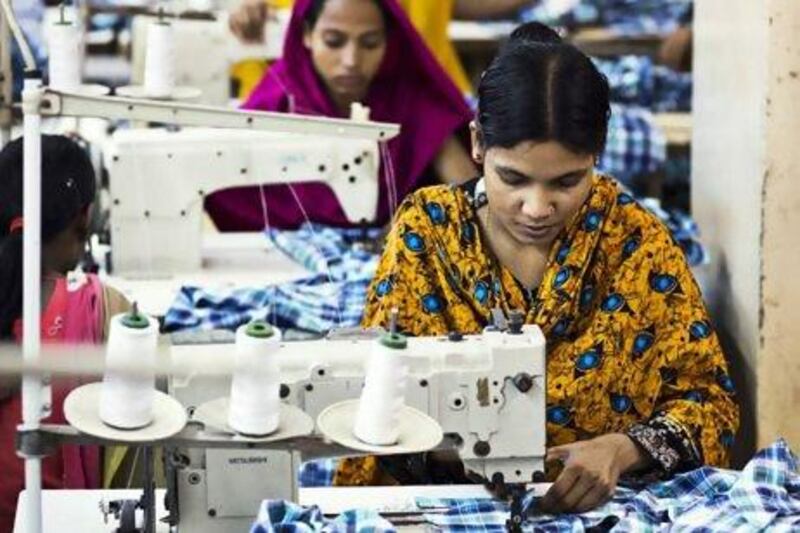As consumers, we seem to care about brands but not about the origin of the products we use. In an age of hyper-connectivity, all that is about to change, writes David Mattin
The shirt you’re wearing right now, you know where it’s from, right? If you answered Zara or H&M or some other brand, you’ve misunderstood. Not which shop it’s from; I mean which country. And which factory in that country? And who was the person in that factory who made your garment? My point is: you wear that shirt pretty often and in these hyper-connected, information-is-everywhere times, those are reasonable things to expect to know, aren’t they?
Of course, the reality is that none of us – bar a few determined outliers – know the answers to those questions when it comes to the clothes we wear every day. Or, for that matter, the car we drive, the smartphone we carry or the food we eat. It’s often said that we live in a world of information overload. Yet the information we have access to or seek out when it comes to the provenance of the products we consume is often minimal, and seemingly hasn’t evolved for decades.
But look closely and all that is starting to change. As consumers, we are becoming increasingly obsessed with total information when it comes to our consumption. And that shift is happening for a number of reasons.
First, there’s the immediate cause. The collapse of a garment factory in Bangladesh earlier this month, which killed more than 1,100 workers, has brought attention to the provenance of our clothes and, by extension, the other products we consume. The clothes industry has responded with impressive speed. Last week, clothing companies that included H&M, Inditex and C&A formally agreed to help pay for safety upgrades at the Bangladesh factories where their products are made.
But other brands are going further: they’re moving to fulfil our new and growing desire to have total knowledge of the products we consume. That desire is being driven by something deeper than passing news headlines. It’s about the way we live and think, now.
Put simply, our expectations as consumers are now conditioned by an online world in which it’s possible to find out just about anything, in an instant. If I can tap my smartphone and get immediate, on-the-go information on the weather, the sports, the news and when the next bus will arrive to take me home, shouldn’t I be able to find out exactly where, how and by whom my T-shirt was made? After all, I know the technology exists to make it possible.
The Australian clothes company Eternal Creation seems to agree. Their clothes are made in the Himalayas and they handpick and train their staff. Each tailor has their own short biography on the Eternal Creation website, a useful, if relatively low-tech, way of fulfilling our rising need for total knowledge of our consumption.
The future? Perhaps that’s a world in which every product comes embedded with full information on provenance. Scan with your smartphone and read up on the manufacturing process, or even get a link to an always-on camera that will livestream footage of the factory – even the desk where your T-shirt was made and a live chat with the worker who sewed the seams.
You know a ton about your favourite brands. Soon, you’ll be able to know as much about the tools, processes and people that bring you all those cool products. But pay attention: you might not like everything you learn.
David Mattin is the lead strategist at trendwatching.com
For more trends go to https://www.thenationalnews.com/trends
Follow us
[ @LifeNationalUAE ]
Follow us on Facebook for discussions, entertainment, reviews, wellness and news.





